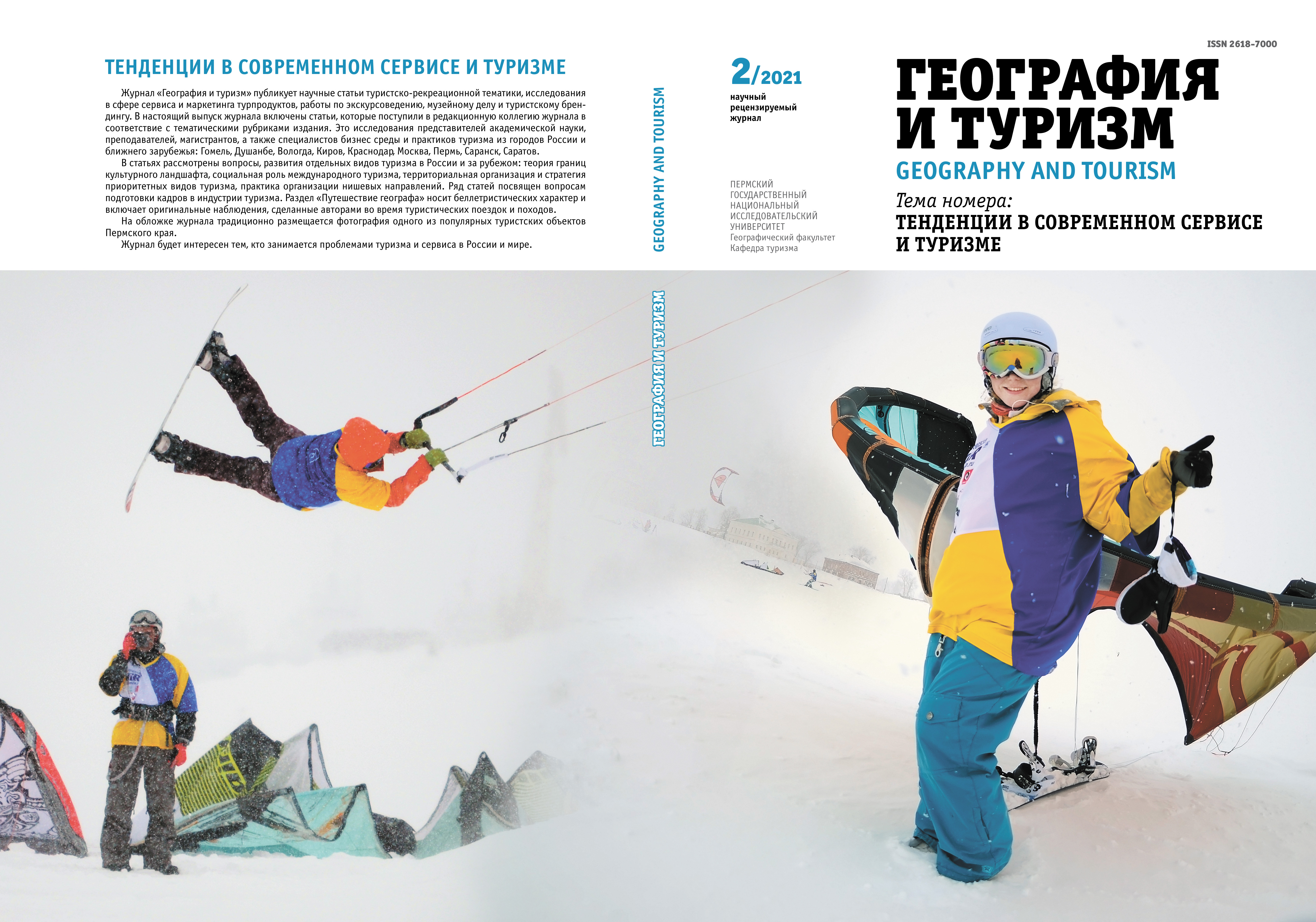NOSTALGIC TOURISM: MOTIVES AND FEATURES OF THE TOUR ORGANIZATION
Keywords:
nostalgic tourism, travel motive, special settlementAbstract
Nostalgic tourism is a special and rarely demanded type of tourism. Its allocation is due to the specific motivation of tourists, the special geography of the places visited and the individualization of travel. In this type of tourism, the personal contact of a tourist and a specialist in the destination plays an important role, especially if the tourist is a foreigner. The Perm region is not a tourist mecca, but it regularly meets foreign guests whose tourist interest are natural attractions and activities within them. Also, a unique cultural and historical object — the Museum-Reserve of the History of Political Repression “Perm36” attracts many of guests. The history of “involuntary unfreedom” associated with political decisions and large communist construction projects of the Soviet state is a potential opportunity to attract tourists who are eager to remember the past, to understand themselves through the history of their ancestors. And if for domestic tourists such a trip is rather an exception, then for a western tourist it is a common motive for travel. The uniqueness and complexity of organizing a nostalgic tour and its importance for tourists are shown on the example of requests from tourists from the UK and New Zealand. Both tours are connected with the history of the repressed Poles, who were exiled to the territory of the north of Perm region by their whole families. Information about it is not easy to find in printed sources, it has erased from the memory of residents, and disappeared along with the settlements. That is why nostalgic tourism involves research activities for the development of the tour. It has a significant social burden, it is important in implementation not only for the tourists themselves, but also for the host country from the standpoint of preserving the history of places, the memory of people and the transfer of information to the younger generation.Downloads
Published
2023-02-06
Issue
Section
Trends in modern service and tourism




